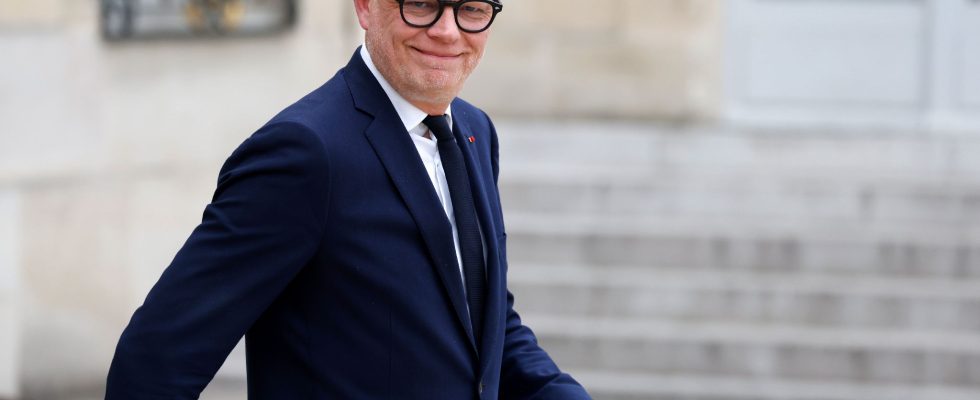They are happy. Even relieved. In the ranks of Horizons, many welcome the interview with Edouard Philippe in the pages of L’Express on the theme of immigration. The government has been skating for months to find a majority to vote on its bill, for weeks the subject has been at the center of public debate: that is to say if its troops were waiting for it to finally define its “clear lines” . “We could not stay out of this subject”, slips the deputy François Jolivet, when a leader of the party concedes that he “would have liked Edouard to come out earlier”.
Silence is golden, but does not shine enough in the eyes of some faithful. The rare word of Edouard Philippe, theorized, corollary and absolute symbol of his substantive work and his long-term vision, could have given rise in the space of a year to a form of frustration among his Horizons comrades. “To see far”, yes; be forgotten, no thank you. Some of those who placed great hopes in the former Prime Minister sometimes have ants in their legs, the rise in power of the party as of its leader is being desired. They are a few executives to have touched him two words: “I understand the strategy, but you also have to deal with the doubts and anxieties of people at the moment”, advised him a deputy who says he is entirely devoted to the rise of his boss.
The president of the Horizons group in the National Assembly, Laurent Marcangeli, does not hide the existence of debates within his formation on “the strategy chosen by the party leader”, but everyone knows that it will be necessary to get up early to force the mayor of Le Havre to manage his time differently than he sees fit. “Edouard, it’s Edouard. Who knows him knows that he sticks to his plan, to his rhythm. He is where he wants to be, he does what he intends to do”, slice one of his fellow travellers. To be on the right – and to claim it – is also to have a sense of hierarchy, the political offices at the HQ on Avenue d’Iéna are not AGs of the University of Tolbiac. We will also be subtly pointed out that the parsimonious communication of the former tenant of Matignon does not prevent him from remaining firmly attached to the first place of the favorite political figures of the French…
“If he were seen as the descendant of macronism, he would surely not make his more than 50% in the opinion polls …”, laughs a parliamentarian. Beyond the tempo, the strategy of postcards is inseparable from that of sidesteps. In Philippia, time management is also, inevitably, that of differentiation, of self-affirmation and of one’s ideas. Debt repayment, retirement age (“at 65, 66 or 67”, he explained in Challenges), immigration… At irregular intervals, the city councilor places his markers, shows some vertebrae of his ideological skeleton still under construction. Emmanuel Macron’s ex-Prime Minister is moving quietly, but will one day have to answer a central question: how to appear as an alternative and not as an heir? “In 2027, the French will not want to elect a clone, at some point we will have to know how to free ourselves”, murmured Laurent Marcangeli a few weeks ago, joined in his obviousness by a majority of the leaders of the party. This is why the slightest prank or fundamental divergence sends the most suspicious Macronist leaders to the ceiling, who never forget to recall the agenda of their majority allies: “They are looking for pretexts to be able to say, one morning, that they are no longer with us”, affirms one of the pillars of Renaissance.
On this subject, there are some shades of radicalism in the ranks of the philippists: in the minority, the most critical of the head of state believe that it would have been necessary to “break away” from the majority last June; others, much more numerous, observe with pragmatism that distancing in broad strokes is not the best of political calculations. “Edouard considers that the theory of the central block should be privileged, we are more to the right than Renaissance, but there will be work to do with our majority partners to prepare an application”, estimates a right arm of the mayor of Le Havre. Supporting the beam that works rather than sawing off the branch: Philippia is convinced that a new political recomposition will be at work after the European elections of 2024 and that at the crossroads of ambitions, the stature of the mayor of Le Havre, facing at the risk of Marine Le Pen, should not suffer from any competition. The union also asks to “see far to do well”. For the time being, Edouard Philippe is in a hurry to finish a “political” book for the literary season in September. One more milestone on the tightrope of emancipation?
